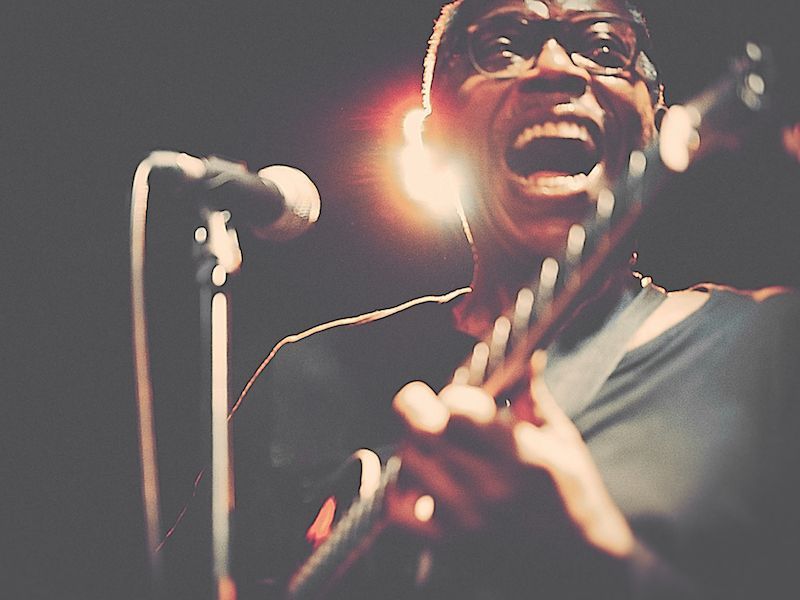This Familiar Problem For Music Lovers Can Be Avoided

Do you turn up the volume when your favorite song comes on the radio? You aren’t on your own. When you pump up the music, you can feel it in your gut. And it’s fun. But, here’s the situation: there can also be significant damage done.
The connection between music and hearing loss is closer than we once thought. That has a lot to do with volume (this is based on how many times per day you listen and how intense the volume is). And it’s one of the reasons that many of today’s musicians are changing their tune to protect their hearing.
Musicians And Hearing Loss
It’s a fairly famous irony that, later in life, classical composer Ludwig van Beethoven was hard of hearing. He was only able to hear his compositions internally. On one occasion he even had to be turned around so he could see the thunderous applause from his audience because he wasn’t able to hear it.
Beethoven may be the first and most famous example of the deaf musician, but he definitely isn’t the last. In more recent times lots of musicians who are widely recognized for playing at very loud volumes are coming out with their stories of hearing loss.
From Eric Clapton to Neil Diamond to will.i.am , the stories all sound remarkably similar. Musicians spend a large amount of time coping with crowd noise and loud speakers. Noticeable damage including tinnitus and hearing loss will ultimately be the result.
Even if You’re Not a Musician This Could Still be an Issue
As a non-rock star (at least when it comes to the profession, everybody knows you’re a rock star in terms of personality), you might have a hard time relating this to your personal concerns. You’re not performing for large crowds. And you’re not standing in front of a wall of amplifiers.
But your favorite playlist and a set of earbuds are things you do have. And that’s the problem. Thanks to the modern capabilities of earbuds, nearly everyone can enjoy life like a musician, flooded by sound and music at way too high a volume.
The ease with which you can expose yourself to detrimental and constant sounds make this one time cliche grievance into a considerable cause for worry.
So How Can You Safeguard Your Ears While Listening to Music?
As with most situations admitting that there’s an issue is the first step. Raising awareness can help some people (particularly younger, more naive people) become aware that they’re putting their hearing in danger. But you also need to take some further steps too:
- Manage your volume: If you exceed a safe listening level, your smartphone might let you know. You should listen to these safety measures if you value your long-term hearing.
- Wear earplugs: When you go to a rock concert (or any kind of musical event or show), wear earplugs. They won’t really lessen your experience. But your ears will be safeguarded from further harm. (And don’t assume that using hearing protection will make you uncool because it’s what the majority of your favorite musicians are doing.).
- Get a volume-checking app: You might not realize just how loud a rock concert or music venue is. Wherever you are, the volume of your environment can be calculated with one of several free apps that can be downloaded to your smartphone. This can help you keep track of what’s dangerous and what’s not.
Limit Exposure
In a lot of ways, the math here is quite simple: the more often you put your ears at risk, the more extensive your hearing loss could be later in life. Eric Clapton , as an example, has entirely lost his hearing. He probably wishes he begun wearing earplugs a lot sooner.
Reducing exposure, then, is the best way to limit damage. For musicians (and for individuals who happen to work around live music), that can be challenging. Ear protection might provide part of a solution there.
But all of us would be a lot better off if we simply turned the volume down to sensible levels.


